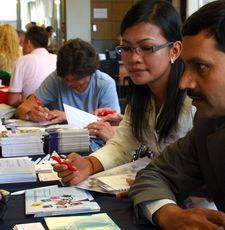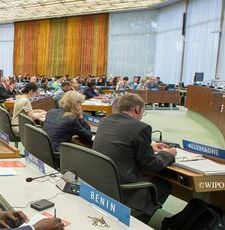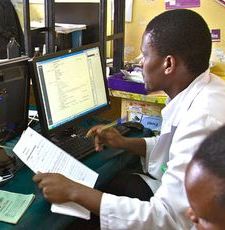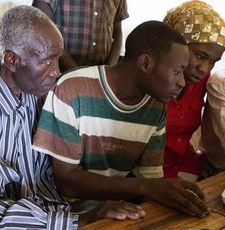ABOUT THE RESOURCE
In 2011-2013 EIFL provided financial support to 34 projects that implemented national and institutional open access (OA) advocacy campaigns to reach out to research communities and OA publishing initiatives.
Through small grants and support from their own institutions, the projects engaged in a wide variety of campaigns and activities, including: holding workshops, creating websites, building institutional OA repositories, creating e-learning courses, and implementing OA publishing platforms.
The case studies resulting from the projects reveal impressive first-time achievements and will help increase the availability of research literature in developing and transition countries.
Learn more about the key achievements for this national OA campaign in Ukraine below. You can access the full case study (strategies, tactics and tools, success stories and lessons learnt) by clicking on the download button.
About the project in Ukraine
Ukraine is a large producer of research outputs. There are 800+ higher education institutions in the country and among them there are 351 Universities and 119 research institutes of Academy of Science of Ukraine. Over 179,000 researchers are employed, including 84,400 Doctors of Science. Over 1,400 titles of academic journals and other scientific serials are published in Ukraine and over 170,000 articles are published annually.
Although Ukraine’ research capacities are rapidly improving, some significant problems remain. The circulation of academic journals rarely exceeds 150-200 print copies that are not distributed in a systematic way. 99% of research publications are in Ukrainian language only, without English annotations. In 2011, EIFL-funded national project "Open Access in Ukraine: From Islands to Global Village" was launched to improve scholarly communication in the country.
Key achievements
- The promo film “OA in Ukraine: from islands to global village” that provides introduction to Open Access (OA) and showcases prominent researchers and research administrators talking about OA. The film is available on YouTube; it has been viewed over 200 times.
- 100 film copies (on СD-ROMs) have been given to different universities and research institutions all over the country.
- The film will serve as a useful tool for OA advocates because it can easily be presented to a variety of audiences, including university management, researchers, students or librarians.
- Over 530 researchers and students, research managers, editors and librarians learned about OA strategies and benefits, when attending six workshops (compared to four workshops initially planned) hosted by university/academic libraries in six cities.
- OA was presented at three sessions of the State Culture and Arts Management Academy (main training centre for librarians) in September – November (over 30 participants)
- In-depth interviews and workshops with researchers, university administrators, journal editors and publishers, and librarians highlighted their opinions about the importance of OA and the need for institutional OA policies to make research output visible globally. These interviews helped to change the university management’s point of view concerning OA and introduced positive attitudes.
For Ukraine to become a really strong partner in the world of research, our researchers need to know what is published world-wide, what are the key research problems globally. They also need to share their research results. And it is a kind of quality test for them. By opening up their research results they demonstrate their achievements and others can easily verify them. When we open up research results we increase the quality. And access to research outputs also helps me in research evaluation. I believe that all research outputs should be in Open Access.
SHARE / PRINT









